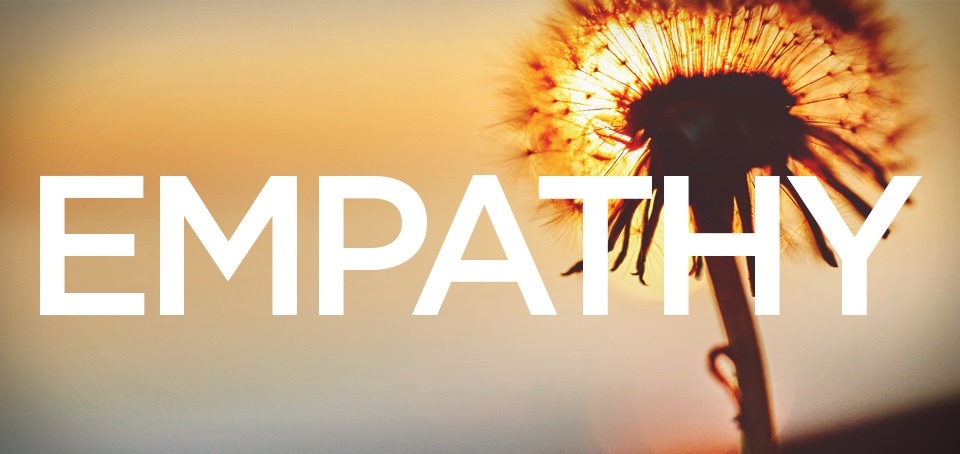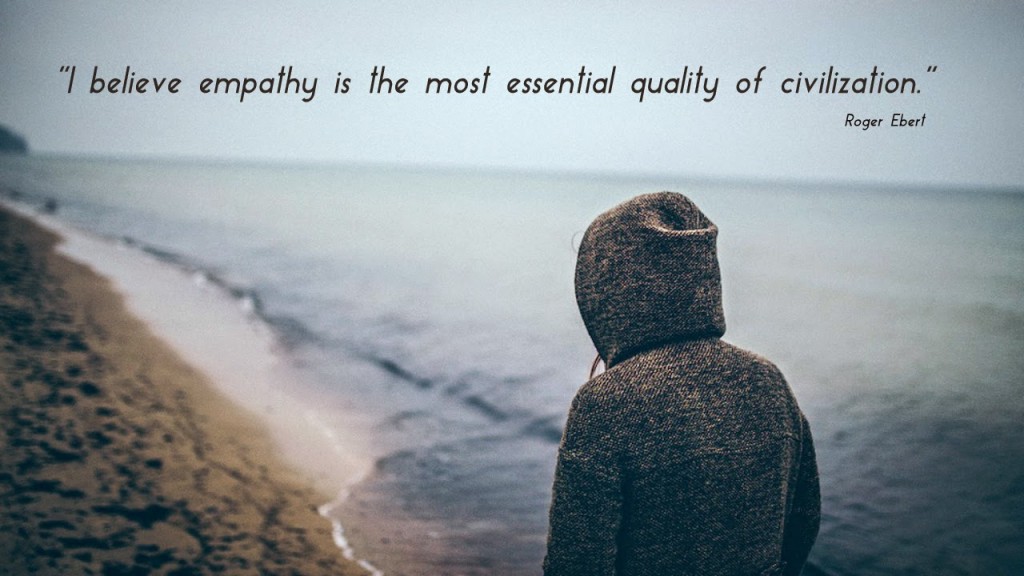The development of spirituality launches us toward the world; it makes us even more empathetic with others. To turn this into reality, we initially need to include an empathetic attitude towards ourselves in our daily activities.
Being emphatic is natural in humans: when we see someone suffering, the wanting to help simply arises in us, spontaneously, because in that precise moment, we recognize the sufferer as someone like ourselves, we identify ourselves with him or her.
The word empathy has its origin in the Greek term empatheia, which means enter or get into the feeling. Therefore, the first condition to be empathetic is to be receptive to others and simultaneously to our inner wholeness. This means we must be willing to know both others and ourselves. Empathy helps us to free ourselves from our rigid and repetitive patterns.
From the partnership point of view, by being partners, we become more and more empathetic and the strengthening of the relationships, helps us detach ourselves from a self-centered vision that generates anxiety and loneliness.
Marcia Mattos writes: “The fact that the other exists beside me, that is by my side and willing to do things with me, inspires me to awaken qualities that were unconscious in me. Every personality is enriched with that. There is a powerful chemistry that the other has on us, causing us to surface effects and virtues that we, alone, would not be able to grasp. There is a delicate balance between the needs: mine, yours and ours”.
In general, we have the habit of seeing only our own needs, even when we think we are generous. This is the reason why it is so hard to help others: we have difficulty perceiving their needs. Thus, we end up creating unbalanced and neurotic links based on co-dependency. Someone co-dependent is a person who has been left unaffected by the behavior of another person, and is obsessed in controlling the behavior of the other person. When we say yes, but in fact, we really mean no, when we do things that we really do not want or simply follow what others have done, we are being co-dependent and not patient or generous! A co-dependent attitude may seem positive at first, but actually, it is generating low self-esteem and lack of confidence. In other words, if, by dedicating ourselves to others, we abandon ourselves, we will later face the consequences of our ignorant attitude. Recognizing our limitations and needs is as healthy as the motivation of wanting to overcome them.
To feel the pain of another does not mean having to repair it. This is our great challenge: to feel the pain with the simple purpose of approaching, instead of wanting to change or cease it immediately. It should be clear that empathy has nothing to do with the compulsive need to fulfill the wishes of others or co-dependent relationships.
The balance between giving and asking for change, giving and receiving affection and attention, is the healthy way to bring people around us, without running the risk of creating destructive links. The paradox of a relationship is that it forces us to be ourselves, to express ourselves without hesitation and to take a position, but at the same time, it demands that we abandon all fixed positions, as well as our attachment to them. Detachment in a relationship does not mean not having needs or not paying attention. If we ignore or deny our needs, we cut an important part of ourselves and we will have less to offer to our partner. Detachment, in its best sense, means not to identify ourselves with deficiencies, preferences or aversions. We recognize their existence, but we keep in touch with our higher self, where the needs do not dominate us. From this perspective, we can choose to reaffirm our desire or to leave, according to the current needs.
 Empathy begins with the ability to be good concerning ourselves, to recognize what we do not like and to admire our qualities. The better we have included our needs and feelings when we were kids, the better we recognize them as adults. Perhaps in the West we have been conditioned to regard spiritual development as a serious and as a somber affair. Perhaps also, people’s approach to the Dharma is often dominated by a negation of themselves that stems from a superficial understanding of the idea of non-self, and of such terms as overcoming the ego.
Empathy begins with the ability to be good concerning ourselves, to recognize what we do not like and to admire our qualities. The better we have included our needs and feelings when we were kids, the better we recognize them as adults. Perhaps in the West we have been conditioned to regard spiritual development as a serious and as a somber affair. Perhaps also, people’s approach to the Dharma is often dominated by a negation of themselves that stems from a superficial understanding of the idea of non-self, and of such terms as overcoming the ego.
Buddhists often seem to be more concerned with what they shouldn’t do than with what they should do, which of course, very much includes the cultivation of a happy and joyful attitude towards the ups and downs of life. It seems that many Westerners understand the Buddhist precepts, ethical guidelines, primarily as prohibitions, rather than seeing them as opportunities for the positive expression of awareness and compassion. Western Buddhists often seem a little stiff, as if in them, the valuable practice of mindfulness finds its emotional energy in the will, rather than from calmness and clarity. A clear, still pond ripples at the slightest breeze. A calm, clear mind is forever ready to respond to the world around it. Getting in touch with your feelings is the basis for developing empathy. How can someone who doesn’t know their own needs, understand the needs of others?
